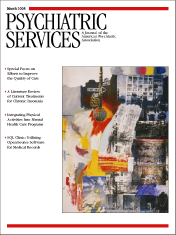Let Them Eat Prozac: The Unhealthy Relationship Between the Pharmaceutical Industry and Depression
David Healy, a British psychiatrist who is very familiar with the pharmaceutical industry and has written several books on psychopharmacology, is known for holding controversial views about psychotropic medication. Let Them Eat Prozac: The Unhealthy Relationship Between the Pharmaceutical Industry and Depression is no exception. Healy is not at all sure that selective serotonin reuptake inhibitors (SSRIs) are useful in treating depression, but he is convinced that SSRIs cause suicide through inducing akathisia. He believes that there is no evidence for a serotonin deficit in depression and questions how common depression really is. (Many readers will be surprised to learn that before 1980 depression was thought to be a rare disorder.) Healy indicates that SSRIs are more addicting than benzodiazepines. And he presents a case that there is a conspiracy to hide all these facts.
The book contains a preface and a final chapter that are basically editorials that make these points; the book consists largely of case discussions, reanalysis of data, and historical statements about the development and marketing of SSRIs. The problem is that it is difficult to read these with the belief that the author is presenting a dispassionate historical account or an objective look at clinical cases, the literature, or data analysis. It is very clear that Healy has an agenda, and he takes every opportunity to reinforce that agenda. He tends to make sweeping statements, with lots of "evidence" that may be a peer-reviewed journal article but also may turn out to be a quote from a colleague or a line from one of the many anti-Prozac books. He also tends to exaggerate many facts in his favor—for example, a characterization of the American Psychiatric Association's annual meeting that is correct in some respects but quite inaccurate in others.
A second theme in the book is a defense of Healy himself. The author feels that he has been dealt with badly by the pharmaceutical industry, academia, and his colleagues. (He won a wrongful termination suit at the University of Toronto.) At times it seems that this agenda is actually the point of the book, rather than an exposé of Prozac and the drug companies.
However, what is really disappointing about this book is that the relationship between the pharmaceutical industry and various aspects of our society is a very important topic. A well-researched discussion of the issues, framed by a dispassionate history of the development of SSRIs, would have been a welcome addition to the literature. But, despite the subtitle, that isn't really what this book is about. Rather, it's about Healy's ideas about SSRIs and the drug companies, and an apologia of his own actions.
That being said, Healy does raise some timely issues. Clinicians should be concerned about issues such as the unintended effects of medications and the influence of the pharmaceutical industry on prescribing. But they are likely to find a more useful exploration of these issues elsewhere.
Dr. Thompson is a clinician and administrator from Glen Cove, New York. He is currently administrative director of the American Society of Clinical Psychopharmacology.



